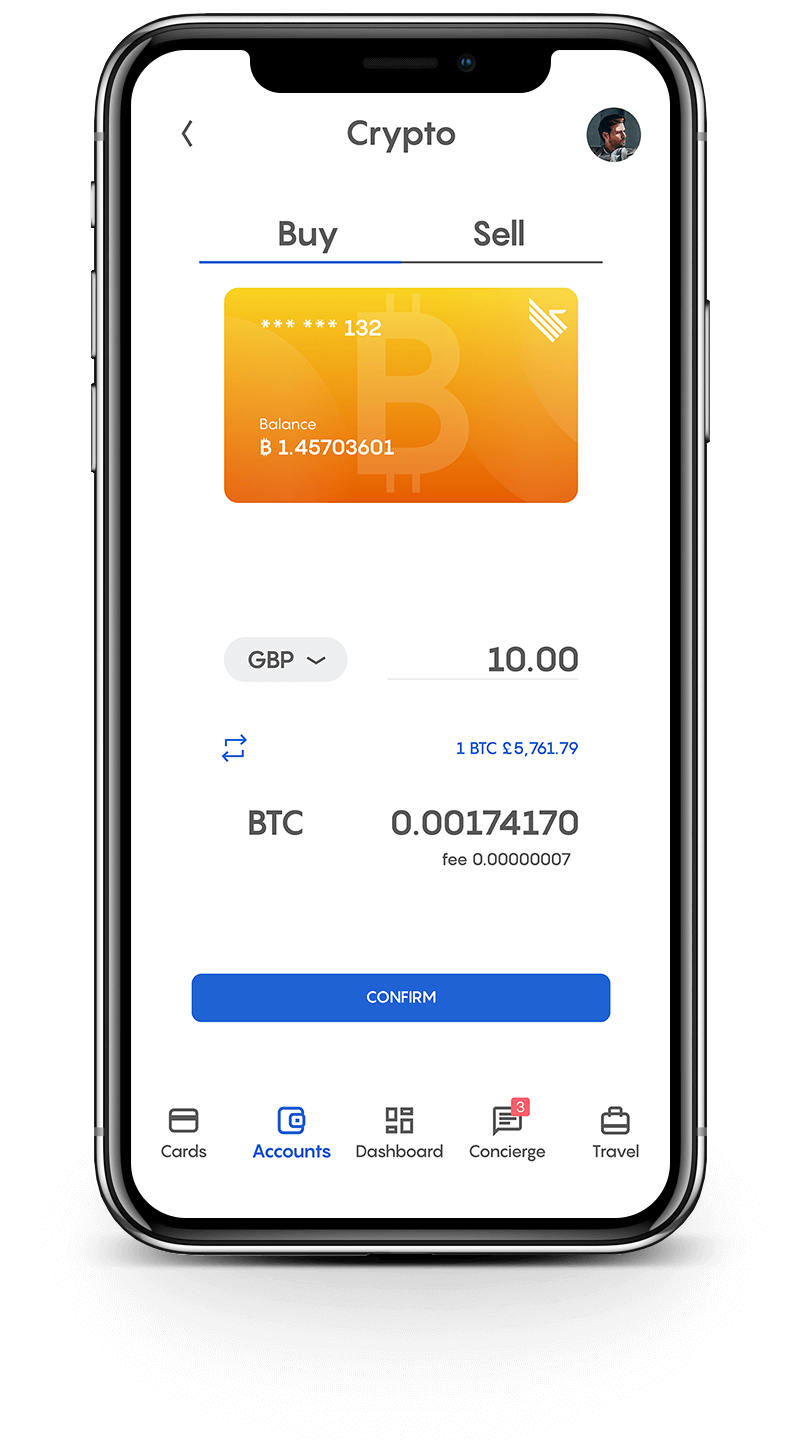You can indeed make fortunes overnight by not only trading and HODLing crypto but also by building enterprise and mining on blockchain. Indeed, in just a decade, many have joined the billionaires club thanks to crypto and the blockchain technology.
Based on coins in wallets linked to Satoshi Nakamoto, the founder of Bitcoin is estimated to be worth more than $73 billion, which puts them in the top twenty wealthiest people in the world. Vitalik Buterin, the founder of Ethereum, the second-largest blockchain, is estimated to be worth $1.5 billion.
Other people who have become billionaires through their involvement with crypto include Brian Armstrong, co-founder of the Coinbase exchange ($6.5 billion), brothers Tyler and Cameron Winklevoss ($3 billion), and Michael Saylor, founder and CEO of software firm MicroStrategy($2.3 billion).
Many more have grown their worth from hardly anything to millions and hundreds of thousands of dollars by investing in cryptocurrencies and blockchain in general. Indeed, if you bought $100 worth of Bitcoin in 2010 and just kept it without doing anything else with it, you would be worth over $6 billion today.
However, the success stories have created a widespread but not entirely accurate notion that crypto creates wealth almost magically with little effort, knowledge, or skill needed. This notion has turned out to be extremely harmful, especially when used by scammers as bait.
Nowhere is the impression that crypto creates wealth with little effort, skill or knowledge more widespread than on the African continent. And here, it means even more, considering that up to 40% of the population lives below the poverty line, according to the World Bank.
The sad part is that many Africans learn about crypto for the first time from scammers who use this narrative as bait to steal from them. This becomes an obstacle to them seeing the actual benefits of the new technology. When they finally realize they have been duped, they are more likely to think crypto itself is a huge scam.
In recent years, Africa has recorded some of the largest crypto scams. In December 2020, Mirror Trading International (MTI), a South African-based crypto trading platform, collapsed while owing investors over US$588 million in Bitcoin. About three-quarters of this amount belonged to African investors.
In April 2021, Africrypt, another South African crypto investment firm operated by brothers Raees Cajee and Ameer Cajee, ceased operations. It still owes investors over US$3.6 billion.
Advertisement
Join Club Swan and get... more!

Buy and sell your crypto at the best rates and spend them or transfer them to another wallet. You can seamlessly spend your crypto with the Club Swan card anywhere in the world. Everything from one account, on one platform.
- Buy, sell or store 9 different crypto currencies, including: Bitcoin (BTC), Ethereum (ETH), Litecoin (LTC), Bitcoin Cash (BCH), Tether (USDT), BAT, Paxos (PAX), USD Coin (USDC) and EOS.
- Low fees from 0.5%*.
- One simple rate for buy and sell. No hidden margin built into our prices.
- Seamlessly spend your crypto with the Club Swan card.
- Turn your crypto into traditional currencies.
- Quick and simple wallet to wallet transfers.
- Free transfers between Club Swan members.*
- 24/7 Customer support.
Club Swan's flexible account gives you access to multiple traditional currencies, live real time exchange rates, bank transfers and an elegant metal card allowing you to spend in more than 150 currencies around the globe.
- Live traditional currency exchange rates.
- Bank transfer exchange rates typically 4-8% better than high street banks.
- USD, GBP, EUR, CNY, and JPY accounts*.
- Transfer funds in and out of your account with SEPA/SWIFT/Faster Payment/Fed Wire Payments.
- Spend 150+ traditional currencies around the globe with Club Swan card.
- International ATM withdrawals.
- Daily ATM withdrawal limit $1,500.
- High account limits.
- Free transfers between Club Swan members*.
- FCA regulated for your peace of mind**.
- 24/7 Customer support.
Save precious time and money. Use your Club Swan virtual assistant for your travel needs. We also offer personal shopping, VIP event access and unique experiences.
- Save up to 40% on flights and holidays.
- Exclusive negotiated rates on First and Business class airfares.
- Private transfers.
- Luxury car rentals.
- Personal shopping assistant.
- Luxury product procurement.
- Concert tickets.
- Activity experiences.
- Event access.
- VIP dining & restaurant bookings.
- Private event & party coordination.
- 24/7 live chat concierge support.
The most common crypto scams
Over time scammers are discovering and inventing new ways to recruit victims to siphon their money. However, it is important to point out that most of the so-called crypto scams are not new. They have always been around, except that they now can use crypto as the medium of exchange.
Indeed, many of them are similar, if not the same, as, for example, Bernie Madoff’s Ponzi schemes. Crypto just gives them a veneer of huge opportunity, especially with the many stories about people who have become rich by involving themselves with crypto.
Crypto is also a better method of payment, given that there are a few restrictions even for international transactions. Of course, there is also the fact that crypto payments are pseudo-anonymous, and they cannot be reversed.
With that stated, the following are some of the most common crypto scams happening around the world, and the African continent in particular:
Fake token sales
Selling digital tokens created on the blockchain through crowd sales, in particular Initial Coin Offerings (ICO), Security Token Offerings (STO), Initial Exchange Offerings (IEO), or Initial DEX Offerings (IDO), has become a popular way through which blockchain projects raise capital.
Instead of courting angel investors and early-stage venture capital firms, who are a little more difficult to persuade, developers and founders can sell tokens created on blockchains like Ethereum and Binance Chain to the general public and raise the funds they need.
In return, the investors hope to sell the tokens at a higher price once the project is in operation and is delivering the promised service. The token’s value often comes from its use as a medium of exchange or other utility function on the platform the project builds.
While many genuine projects have raised funds this way, and investors have increased their worth by buying such tokens, it has also become a means through which scammers can easily steal from unsuspecting investors.
It is very easy for anyone to go onto the Ethereum blockchain and create digital tokens. And given that Ethereum provides the necessary infrastructure through the various established standards, including ERC-20, these tokens can be held in popular wallets and traded on mainstream exchanges.
An informed investor would understand that a token not backed by a viable project that needs it for a utility function is more or less worthless even if it is available on a mainstream exchange. Meanwhile, someone not so informed might believe that they are getting early into the next Bitcoin or Ethereum.
Many end up buying digital tokens that never grow in value to earn them any profit. If anything, often, the prices drop to near zero. In many cases, these tokens are popularized through pump and dump schemes. The scammers create the impression that there is a growing demand and rising price. This is done through planting stories in media and online forums about the anticipated success of the project behind the token or coin.
The investors buy, hoping the price will keep going up only to crush as the scammers exit leaving investors holding worthless tokens.
In some cases, the scammers don’t even bother to create tokens on the blockchain or even seek credibility from the mainstream wallets and exchanges. They just create a website and invite investors to create accounts (wallets) there, make payments, and then they are assigned numbers they are made to believe it is crypto.
While you are made to believe the crypto you deposit goes to your account (wallet), it is redirected to a wallet fully controlled by the scammer.
Fake marketing campaigns
One critical item a scammer has in their toolbox is making it seem like they are introducing you to ways to make a lot of money so effortlessly. What beats that other than watching ads online and getting paid tons of money in crypto?
Of course, like with most of the other schemes, there are genuine enterprises out there that pay people to watch ads. However, those engaged in these scams are not interested in acquiring genuine ad watching business, getting paid for it, and splitting the revenue with you as the person who watches the ads.
Instead, they just want to create the impression it is the business they are running. Meanwhile, their main target is the registration fee you will pay before watching any ads and getting paid. You are encouraged to buy a premium account on their platform to earn more.
Once you register, you are also persuaded to recruit your family members and friends to earn a commission from their registration fees.
Early recruits are then paid from the fees paid by those who come after them. Like all the other pyramid schemes, this finally crashes on its weight, and most people end up earning nothing or losing whatever they paid to acquire premium accounts.
Crypto is used in this case just because it is in the news as the new way one can easily make a lot of money.
Mining or staking certificates
Blockchains, platforms on which cryptocurrencies exist, are supported by networks of computers. Those who provide the computer resources are incentivized by rewards in the form of newly released coins, and the fees users pay.
The process of providing a blockchain network with computer resources and receiving rewards in return is known as mining. It is also known as staking on some blockchain networks.
Indeed, mining and staking are profitable enterprises that many around the world are engaged in. Some scammers have used this way of generating revenue from crypto to steal from unsuspecting investors.
They claim to have set up huge mining or staking operations in locations around the world. They then ask you to invest in their mining or staking operations, and as a result, you get a share of the profits they generate.
To increase your revenue, you are encouraged to recruit others and get a commission from the registration fee they pay or the profits they make later. Again like most of the other scams, the sales pitch mirrors that of a business model that exists. There are crypto mining companies that sell mining certificates to investors who then share in their profits.
Trading on your behalf
Besides mining, investing in projects by buying tokens, and building enterprises on blockchain and its applications, the other way to create wealth from cryptocurrencies is to trade assets on exchanges. The primary blockchain assets you can trade include cryptocurrencies, fungible tokens, and non-fungible tokens (NFTs).
There are now hundreds of exchanges and platforms on which one can buy and sell blockchain assets for profit.
If you choose to trade crypto, there is one cardinal rule that you should never break: trusting anyone with your funds. Your crypto should be in a wallet you
control at all times. It should only leave your wallet to go to the wallet of the person you are selling it to.
Trading crypto needs one to have some level of technical know-how both regarding how crypto, wallets, and exchanges work and how to do analysis and make profitable market calls.
Scammers understand that while some investors want to get a piece of the growing crypto pie through trading, they don’t know how to do it. They then create a platform where you sign up and give them your capital to trade on your behalf.
Like in the other cases, there are genuine investment firms that will take your crypto investment and manage it for you.
However, the scammers would take your investment and then ask you to recruit others so that you earn a commission. Another typical characteristic of trading scams is guaranteed a fixed high percentage return. For example, Mirror Trading International promised its investors a 500% annual return on their investment.
In some cases, once you deposit your crypto into what you think is your wallet on the platform, you never hear from them again.
The red flags one should look out for
As a crypto investor, you have to keep looking for opportunities. However, you should also be on the lookout for red flags.
The following are some of the red flags you should watch out for:
1. Someone asking you to send your crypto to a wallet you have no control over.
As mentioned early, keeping your crypto in your wallet is a cardinal rule you should not break. Even where you need someone else to give you a strategy, it is still advisable to keep your investment in your wallet.
Ideally, you should be the one to implement the strategy. When you are asked to use a platform that has a wallet feature, make sure you can generate a recovery seed phrase, which you can use to recreate your wallet on any other platform online.
If an investment guru asks you to send your crypto to them or to a platform whose credibility you can’t ascertain, that should be a red flag.
2. Being expected to recruit others to increase your returns.
While it is possible to have a genuine enterprise offer you the opportunity to earn a commission by referring others to their business, it should be a red flag when referring others seems like a core pillar of the business model.
Most crypto scams have this feature because it is the most efficient mechanism for recruiting. It is human nature that we are more likely to trust our family members and friends and do what they ask us than if people we didn’t know asked us.
3. Poorly prepared pitches.
If you read a white paper or go through a project’s website, and you see glaring grammatical and factual errors, that should be a red flag.
Also, watch out for catchy but vague descriptions such as ‘automated trading software.’
4. Highly emotional marketing.
It is okay for a business to add emotional elements to its marketing. However, you should watch out when there seems to be more focus on fear, uncertainty, and doubt (FUD such as the fear of missing out (FOMO), showing you images of Lamborghini, exotic vacation destinations, and heaps of dollar bills than on making you understand how the system works.
That also includes testimonials of other investors primarily about living large, vacationing, and buying the finer things of life.
5. Significant use of influencers and celebrities to push the product.
It should concern you if the images, videos, and names of celebrities are used without their direct involvement with the project.
However, even when they are involved in a way that you can prove, you should not lose the fact that, most likely, the influencer has no technical capacity to determine the viability of the project.
Also, they are mostly incentivized through huge payments to support such projects.
6. No information about founders or shady history.
No one indeed knows for sure who the founder of Bitcoin is. There are also a few other genuine blockchain projects out there whose founders have chosen to remain anonymous. Nevertheless, it should be a red flag if it is difficult to find details about the founders or their history seems not clear.
If founders choose to remain anonymous, then they shouldn’t have full control over the project, and in particular, funds investors put in. Also, the project should be transparent enough that anyone can audit it, including its viability, without needing to know the founder.
7. Guaranteed high percentage returns.
The crypto market is highly unpredictable for the most part. Therefore it should not make sense when someone guarantees you a high percentage return.
For example, if an investment firm guarantees you 20%, 50%, or 100% returns every week or month, take that as a strong red flag. You are most likely dealing with scammers who use the high guaranteed returns as bait to get your money.
8. Struggling to understand the actual product or service.
If you attend numerous webinars and meetings and can still not describe in a few words what products or services are offered in a few words, that should be a red flag.
Most scams are designed to be vague so that you cannot pin the founders down on any critical fact. The pitch is intentionally convoluted, and your attention is directed to the bait.
Do the work
You can increase your value significantly through crypto, but you need to do the work and not hope someone else is charitable enough to make you the money.
Anyone can indeed be scammed if the conditions are right. However, if you do the necessary work, you reduce the chances of being scammed.
It starts with not falling for the easy paths to success. Be slow at being persuaded that it is so easy to make money.
Doing the work also includes studying and understanding how every project or investment system works before you put your money in it.
Read the white papers, look at their online presence and, more importantly, look at its core software. If you can’t do a technical analysis of its core protocol, find a review of an objective third party.
Also, take the time and put in the effort to learn how the blockchain technology, in general, works. You don’t need to have detailed technical knowledge but get a general understanding.
This will help you objectively analyze projects and investment opportunities before putting your money in them.




